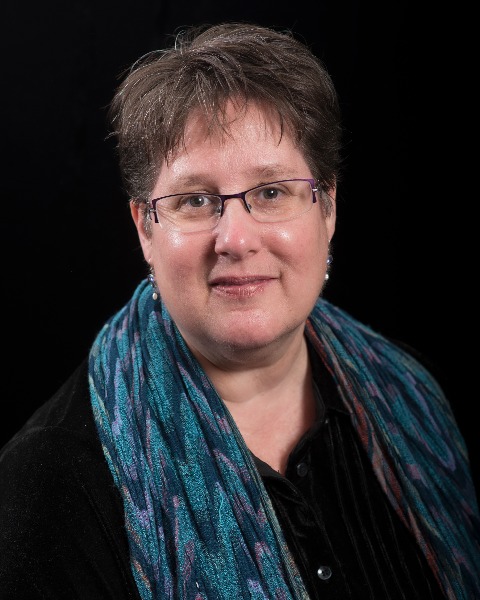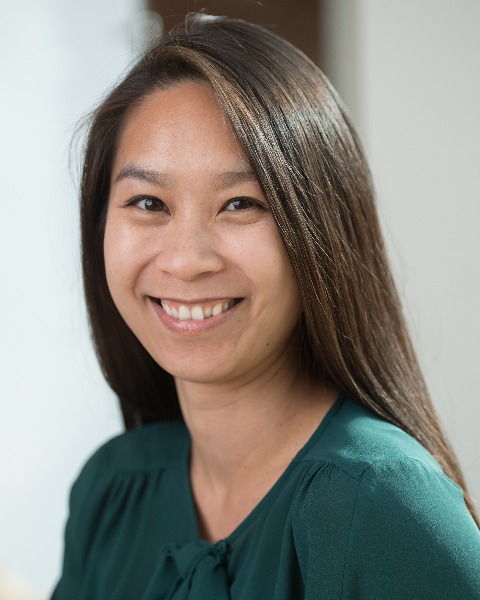Behavioral and Social Sciences
Psychosocial Resources in the Context of Vulnerability Among Older Adults: Implications for Well-Being
-

Aurora Sherman, PhD, FGSA (she/her/hers)
Associate Professor
School of Psychological Science
Oregon State University
Corvallis, Oregon, United States -
KB
Kira Birditt, PhD (she/her/hers)
Research Professor
Survey Research Center
Institute for Social Research, University of Michigan
Ann Arbor, Michigan, United States -

Aurora Sherman, PhD, FGSA (she/her/hers)
Associate Professor
School of Psychological Science
Oregon State University
Corvallis, Oregon, United States -
KB
Kira Birditt, PhD (she/her/hers)
Research Professor
Survey Research Center
Institute for Social Research, University of Michigan
Ann Arbor, Michigan, United States -
LR
Lindsay Ryan, PhD, FGSA (she/her/hers)
Associate Research Scientist
Institute for Social Research
University of Michigan
Ann Arbir, Michigan, United States -

Gloria Luong, PhD (she/her/hers)
Associate Professor
Human Development and Family Studies
Colorado State University
Fort Collins, Colorado, United States -

Emily Kinkade, MS
Ph.D. Candidate
Human Development and Family Science
North Dakota State University
Fargo, North Dakota, United States
Chair(s)
Co-Chair(s)
Individual Symposium Abstract First Author(s)
Social ties and mastery may buffer detrimental effects of stressful life circumstances and vulnerability as individuals age. The purpose of this symposium is to understand the role of psychosocial resources for multiple dimensions of well-being across several age-related contexts. Luong et al. examined social ties’ effects on moving into senior housing using a burst design, finding that social ties were less helpful in the beginning of the move but regained beneficial effects on well-being later. Kinkade and Fuller examined the role of social integration on the longitudinal effects of the widowhood transition for well-being, concluding that increased social integration had protective impacts on depression and functional health among widows compared to non-widows. Birditt et al. assessed the implications of positive activities and social interactions among dementia caregivers using ecological momentary assessments. Positive activities and positive interactions with care recipients were associated with lower levels of daily burden and greater positive affect especially among caregivers who reported high levels of burden. Ryan examined spouses' psychosocial characteristics on partners’ well-being and whether they varied by cognitive status of the partner. She found that spouses’ positive support from children amidst other negative psychosocial experiences was protective for their partner’s life satisfaction. Sherman found that self-esteem for mid-life and older women was associated with higher mastery and lower constraints beliefs and that both were mediated by frequency of self-objectification. Together, these papers highlight the importance of psychosocial resources for well-being as individuals as they age and face new or on-going challenges.
Learning Objectives:
- After attending this session, participants will be able to identify critical life circumstances and psychological processes that impact well-being in adulthood.
- After attending this session, participants will be able to describe different methodological approaches to studying well-being in adulthood.
Presentations:
-
8:00 AM – 9:30 AM ETControl Beliefs Mediated by Self-Objectification in Relation to Adult Women's Self-Esteem
Individual Symposium Abstract First Author: Aurora M. Sherman, PhD, FGSA (she/her/hers) – Oregon State University
-
8:00 AM – 9:30 AM ETPositive Activities and Well-Being Among Dementia Caregivers: Moderating Effects of Caregiver Burden
Individual Symposium Abstract First Author: Kira Birditt, PhD (she/her/hers) – Institute for Social Research, University of Michigan
-
8:00 AM – 9:30 AM ETInterplay of Cognitive Status and Spousal Caregiver Patterns on Well-Being
Individual Symposium Abstract First Author: Lindsay H. Ryan, PhD, FGSA (she/her/hers) – University of Michigan
-
8:00 AM – 9:30 AM ETSocial Support–Health Linkages During a Major Life Event: A New Spin on Stress-Buffering Effects
Individual Symposium Abstract First Author: Gloria Luong, PhD (she/her/hers) – Colorado State University
-
8:00 AM – 9:30 AM ETTransitioning to Widowhood: The Role of Social Integration in Moderating Well-Being Over Time
Individual Symposium Abstract First Author: Emily Kinkade, MS – North Dakota State University
